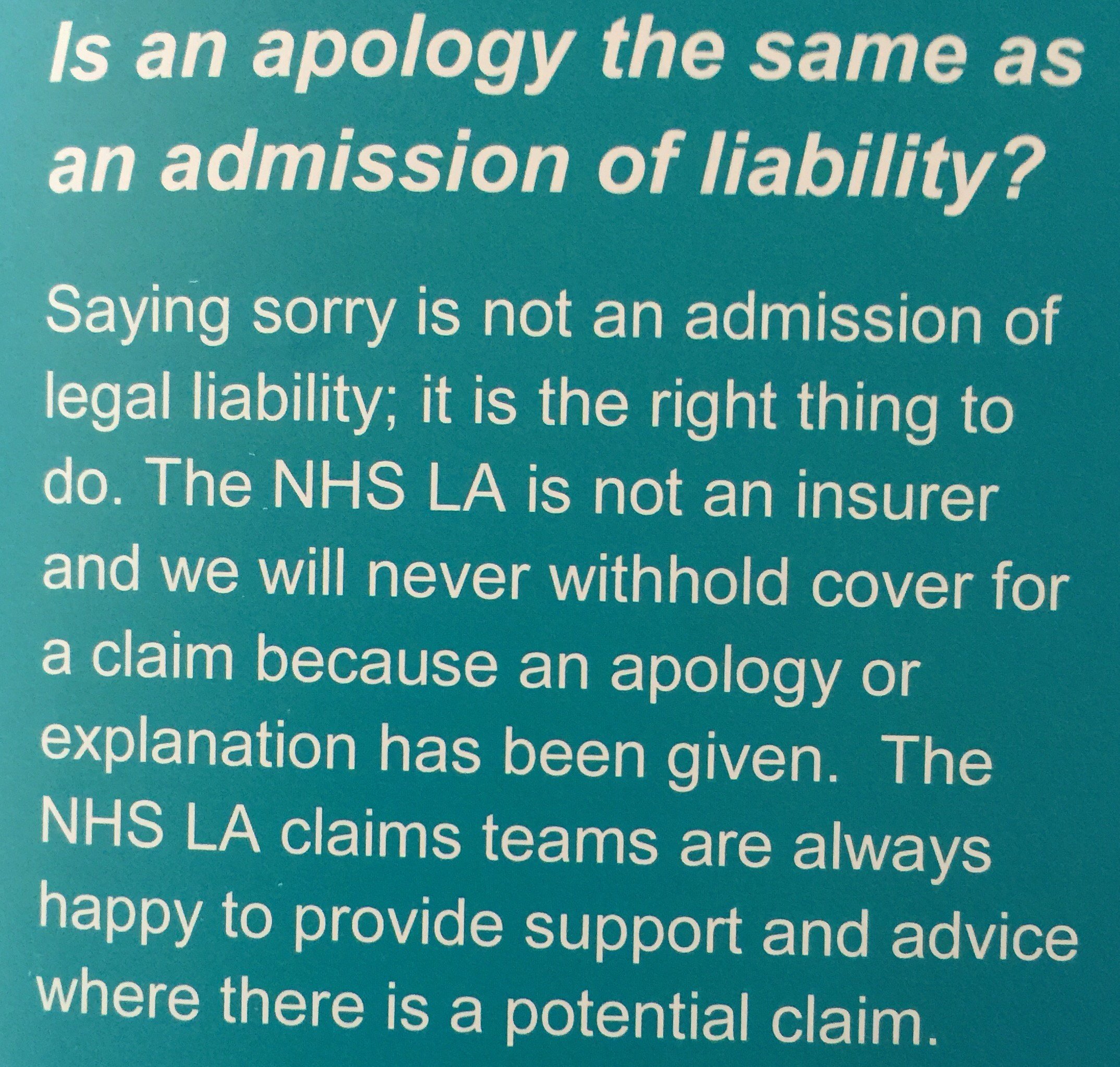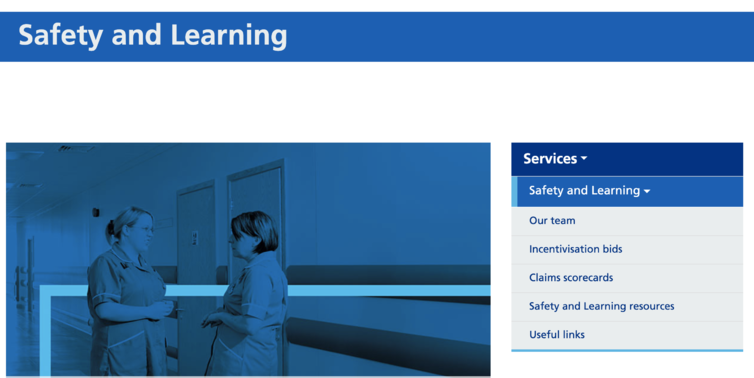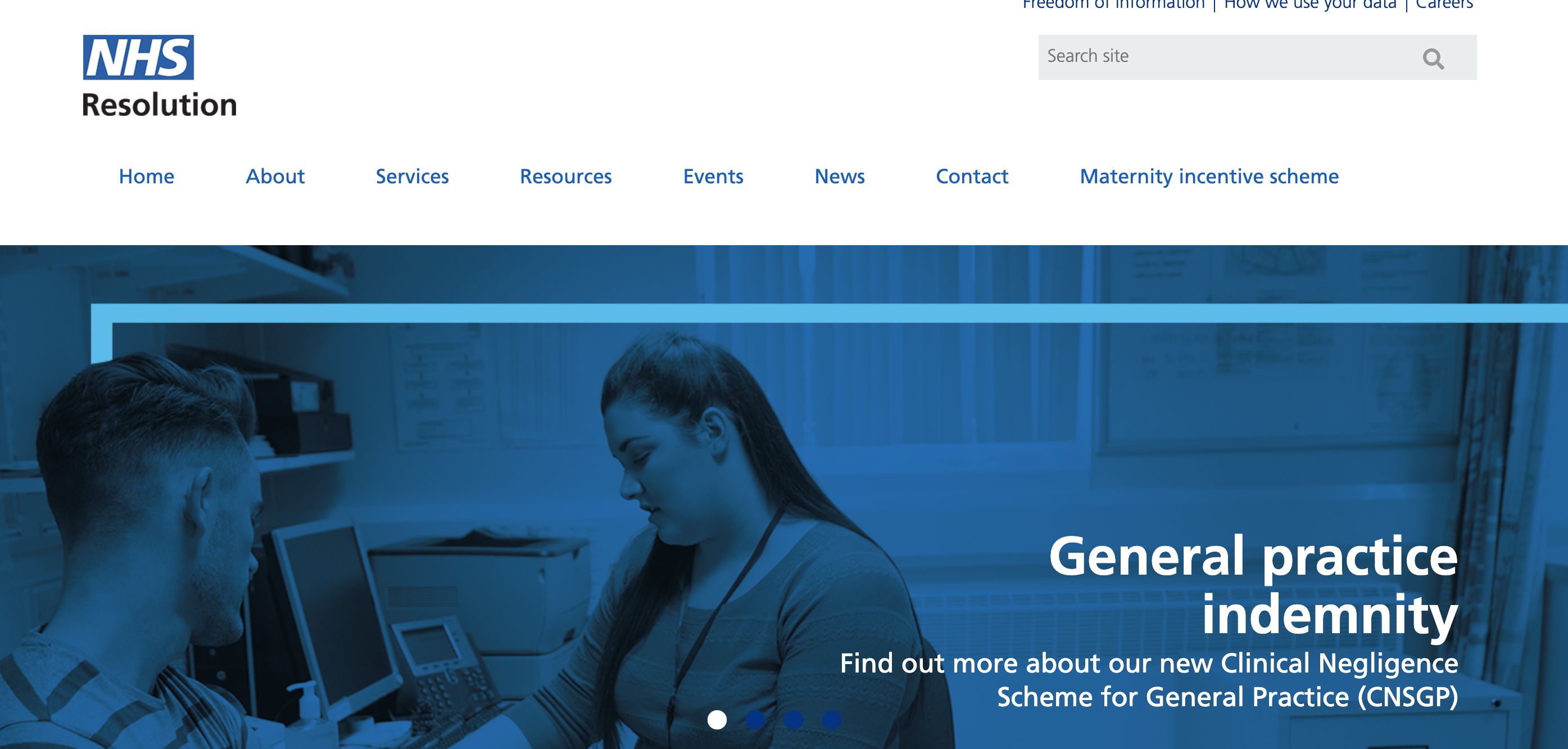
Saying sorry when things go wrong is vital not only for the patient and their family but also for us - so we can learn and improve safety.
Saying sorry isn't an admission of liability.
The NHS Litigation Authority have produced a great leaflet to support us saying sorry when things go wrong.
Their key messages are:
The initial discussion with the patient should occur as soon as possible after the realisation that something has gone wrong.

Patients and their families should be provided with a step by step explanation of what's happened and they should receive clear and consistent information.
Patients and their families should have a single point of contact for further information or questions.
Throughout their care patients should continue to receive all usual treatment and continue to be treated with dignity, respect and compassion.
In the NHS, as in our personal lives, saying sorry is the first step in making things right.
Dealing with complaints isn't that difficult. Listen, sympathise, don't justify, make notes, agree a course of action and follow through - Six simple steps
By equipping and empowering patient-facing front-line of care to handle complaints and say 'sorry' is a simple way to make sure they don't become grievances.
You can find more information on Saying Sorry here http://www.nhsla.com/Claims/Documents/Saying%20Sorry%20-%20Leaflet.pdf
Visit the |NHSALA website for more information on all things legal www.nhsla.com

